Latest News
Catalysts for Change: Museums and Library Partnerships in the 21st Century
Posted by on June 17, 2013 at 4:21 PM EDTElizabeth Babcock is being honored as a White House Champion of Change for her leadership and commitment to libraries and museums around the United States.
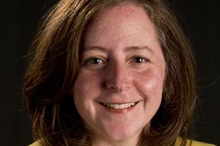
I’ve always been drawn to museums and libraries, perhaps because they embody principles I cherish—equitable access to educational opportunities, cultivation of curiosity about the world, a commitment to care for our planet, and respect for cultural diversity. My own path has reinforced the importance of these values to me. I’ve explored a wide range of careers as an anthropologist, community organizer, user experience researcher, teacher, and most recently, museum educator.
At the California Academy of Sciences in San Francisco, where I lead our public engagement, exhibits, and education teams, I put these values into action each day. My team and I share the scientific and educational resources of this natural history museum, planetarium, and aquarium so the public can connect with the natural world and advocate for the biodiversity and sustainability of life on our planet.
I am honored to be recognized as a Champion of Change, representing one of the many innovative projects stemming from library-museum collaboration. The San Francisco Public Library, the California Academy of Sciences, KQED, and the Bay Area Video Coalition have created a digital learning lab and a regional youth program network to equip young people with the 21st century skills they need to make community contributions. We have been supported by a grant from the Institute of Museum and Library Services and the involvement of many other organizations and foundations.
Our learning network has a STEAM focus (science, technology, engineering, art and math), leveraging the unique technology, science, and art resources of the Bay Area. It aims to provide teens with the access and skills they need to use emerging technologies, and to transform them from media consumers to media producers. We also hope to encourage interest in STEAM areas through multidisciplinary experiences and leadership opportunities.
Learn more about EducationThe Nature of Childhood
Posted by on June 17, 2013 at 4:13 PM EDTDave Becker is being honored as a White House Champion of Change for his leadership and commitment to libraries and museums around the United States.
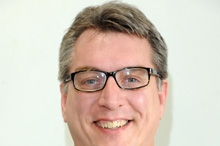
Like many people of my generation, a good part of my childhood was spent exploring, playing, and learning outside. Growing up in a midsize farming community in Michigan, I spent hours in the woods, climbing trees, building forts, catching frogs, and getting as dirty as possible. I didn’t know how valuable these experiences were until I became a parent. For my own children to have any of these experiences, I had to help make them happen. My children needed me and other adults to provide the spaces and opportunities, which are rapidly disappearing as access to nature becomes more and more removed from the human experience. This has become a central commitment of my work with children and families.
For the past 12 years, I have had the good fortune to work for an organization that shares my commitment to connecting children with nature: the Chicago Zoological Society (CZS). The CZS Early Childhood Initiative, known as NatureStart, is connecting children with nature with the help of an incredibly talented team of people. It is my honor to represent them and accept the Champaign of Change award on behalf of them and CZS.
A major breakthrough in our NatureStart Early Childhood Initiative occurred in 2001 when we opened Hamill Family Play Zoo. This groundbreaking exhibit is firmly rooted in an understanding of child development, play, and learning, and it applies new understandings from the field of conservation psychology—the study of the relationships between people and nature—about how children develop positive relationships with the natural world. The exhibit includes a variety of indoor and outdoor settings in which young children can garden, play in the woods, build forts, make mud pies, look for bugs, meet animals up-close, pretend to be animal, and help care for animals in ways that are meaningful and relevant for them.
Learn more about EducationTransforming Communities through Child-Centered Learning
Posted by on June 17, 2013 at 2:41 PM EDTCheryl McCallum is being honored as a White House Champion of Change for her leadership and commitment to libraries and museums around the United States.
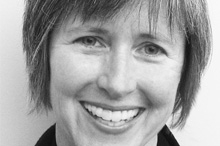
I believe in “learning by doing,” which is why I fell in love with the Children’s Museum of Houston the minute I walked in the building 20 years ago. Since that time, I’ve had the great fortune of being a part of the team that furthers our mission to “transform communities through innovative child-centered learning” in one of the most dynamic and diverse large cities in the nation. It’s a great honor to be recognized as a White House Champion of Change for this work, helping to provide personalized learning experiences to each child, parent, nanny, grandparent, and teacher who visits us.
It’s no secret that today’s students are faced with myriad challenges that are hard to surmount. One of our driving goals at the museum is to partner with parents and schools to make sure that children have the well-rounded and relevant learning experiences they need to be successful. Schools can’t offer everything that children need, especially since time in the classroom only amounts to about 20 percent of a child’s waking hours during a year. The Children’s Museum of Houston is dedicated to helping make the most of the other 80 percent to advance learning and achievement.
One of my recent stories about our impacts came from a child who participated in the first year of Summer of Learning, a program we implemented with the Greater Houston YMCA in 2012. The museum developed the curriculum and instructional strategies and trained YMCA summer camp staff to implement the program for elementary school aged campers. At the end of the summer, one of the campers asked a YMCA center director, “Ms. Lori, will we get to do science every day next year when we go back to school?” This one quote sums up quite nicely the passion for learning we are trying to engender with the museum’s programming.
Learn more about EducationWe Could All Use a Level Up
Posted by on June 14, 2013 at 6:03 PM EDTMatthew Winner is being honored as a White House Champion of Change for his leadership and commitment to libraries and museums around the United States.
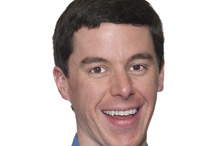
In 1989 I was asking my elementary school librarian if she had any books on Nintendo or the Super Mario Brothers nearly every time I visited the library with our class. The language of my childhood friendships included unrelenting talk of end-game bosses, secret warps, and unlocking extra lives via the Konami code. Not surprisingly, today we rarely go a week in our elementary school library without one of my students requesting video game-related books or content. But while games may have once been perceived as a distraction or viewed strictly for their entertainment value, I believe video games play a unique role in today's 21st century classroom. It is for this that I am honored to be recognized as a White House Creating Lifelong Learners Champion of Change.
My work as a teacher librarian in an elementary school over the past six years has afforded me a number of opportunities to rethink the way we approach learning and in what ways we provide authentic learning opportunities for our students. Students today have access to information in ways unprecedented to the likes of those even a decade prior. It is the role of the teacher librarian to not only create lifelong learners, but also effective users of information and technology.
Not ironically, many of today's students are already adept at using technology. It is our charge to model how said technology can be used to access and use information through an inquiry-based process. To be fluent in these technology tools is to speak the language of the 21st century learner.
Video games have been a part of mainstream culture throughout the entire lives of today's learners. This realization informed many of the steps I have taken to integrate gaming into my library program and instructional practices.
Learn more about EducationPreventing Youth Violence
Posted by on June 13, 2013 at 10:48 AM EDTBob Gilbertson is being honored as a White House Champion of Change for his leadership and commitment to the ideals of the YMCA.
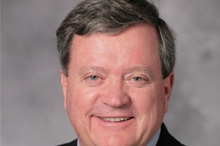
The Seattle Y Youth Violence Initiative was initially launched in 2011, in partnership with the City of Seattle, the YMCA of a Greater Seattle’s Alive and Free Street Outreach Program, A Better Seattle, law enforcement and other local community providers.
The Youth Violence Initiative is designed to create a culture of safety and hope for at-risk youth. This collaboration between street outreach workers (from the Y’s Alive and Free Program), philanthropists, corporations, law enforcement and community groups is focused on strategies to reduce youth violence and build healthy communities in Seattle and surrounding areas. Because of the successful outcomes of the Seattle Initiative, efforts to replicate the model have begun in five other municipalities in the surrounding area, including Renton, Auburn, Tukwila, Kent and SeaTac, where mayors and police chiefs have all committed to help eradicate youth violence in their cities. The Youth Violence Initiative also has been able to demonstrate a unique model of funding by maximizing blended revenue sources from the local cities, the state, and federal government, as well as the local philanthropic community. A key partner in the Youth Violence Initiative is a Better Seattle, founded by Seattle Seahawks coach, Pete Carroll. A Better Seattle provides support and community linkage to the Youth Violence Initiative.
The Y’s street outreach workers connect high risk kids, who have been affected by violence and/or gang activity, to positive support systems and relevant services that help them set and reach positive goals.
The Y’s Alive & Free Street Outreach is actively reducing retaliatory violence and recidivism rates in juvenile offenders. The Y is deeply grateful to all of our partners, including Pete Carroll and the Seahawks for their inspiration and leadership. We are honored to receive acknowledgement as Champions of Change.
Bob Gilbertson is the President and CEO of the YMCA of Greater Seattle.
Learn more about Working FamiliesA Unique Approach to Healthy Communities
Posted by on June 13, 2013 at 10:42 AM EDTJohn Urban is being honored as a White House Champion of Change for his leadership and commitment to the ideals of the YMCA.
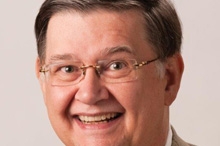
Greater Rochester Health Foundation is honored to be recognized as a Champion of Change, and thanks to the YMCA of Greater Rochester for the nomination for this prestigious award.
The Health Foundation was created in 2006 with a clear mission: to improve the health status of all residents of the Greater Rochester community (nine counties) including people whose unique health care needs have not been met because of race, ethnicity or income. Our definition of health is broad: health is about far more than health care, and health disparities are evident in all areas of health status, particularly in urban and rural areas.
We think of our role as “finding, funding and measuring.” We take a strategic approach to uncovering the community’s most pressing health issues, invite skilled partners to implement outcome-focused programs to address the problems, and then fund professional evaluators to work with grantees to measure their results. Through this process we have had the privilege of working with many champions.
One of the most important of these local champions is the YMCA of Greater Rochester, focused on reversing childhood obesity in order to increase the number of urban children at a healthy weight. In a four-pronged 10-year strategy, Be A Healthy Hero 5∙2∙1∙0, pediatricians, schools, child care providers, families, street teams, local government and community organizations have supported the cause of eating right and being active. Literally thousands of the area’s “little champions” know the 5∙2∙1∙0 jingle by heart.
Our neighborhood health status improvement initiative supports asset-based, resident-driven efforts to improve the physical, social and economic health of their communities. Neighborhood champions build upon the many strengths of their neighbors, local businesses and organizations to improve the “health” of their community in the way they have defined it. Improving health might include reversing open air drug markets, razing unsafe buildings and repurposing empty lots into community gardens and playgrounds, offering GED classes and providing micro loans for small businesses. No single neighborhood’s approach is like another’s.
Within the medical community, many work to champion the delivery of cost-effective, accessible, high-quality health care. They have developed medical innovations, identified and treated depression, initiated protocols to control hypertension and treat stroke, saved a federally qualified health center through an effective merger, and some, including the YMCA, have implemented evidence-based diabetes prevention programs.
It has been our special good fortune to partner with the YMCA of Greater Rochester since the inception of the Health Foundation.
John Urban is the President and CEO of the Greater Rochester Health Foundation.
Learn more about Working FamiliesHelping Kids Succeed
Posted by on June 13, 2013 at 10:36 AM EDTPeggy Brown is being honored as a White House Champion of Change for her leadership and commitment to the ideals of the YMCA.
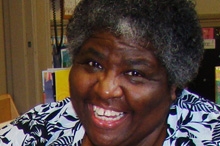
I always wanted to be a teacher and decided early on that I would rather work with younger children – they accept you as yourself as long as you give them love and affection.
I began my career working in the suburbs, but then had an opportunity to work at Christ Child which was in the inner city. The differences between the two really struck me. The kids in the city really needed me more. They needed more hugs. They needed someone to look out for them. I just knew it was where I needed to be.
I was a teacher at Christ Child from 1972 until 1992 when I became the director of the program. At this point, I wanted to be an educational thought leader and help other teachers do their jobs and provide a strong foundation for the young people we care for to grow up to be positive citizens.
When the Y took over the center in 1994, it was welcome. The Y’s philosophy of caring for the whole child and teaching the values of respect, honesty, caring and responsibility were in line with my approach. In our community, the parents don’t always teach these principles, so it’s or job to make sure they learn them early and help them put them to work in their own lives. This is the most important thing we can teach.
My greatest hope is that the children that come through our doors become successful, happy and healthy citizens. It doesn’t matter what they do, as long as they are applying those values that we taught them in their own lives. I know we’ve done our job when my former students bring their own kids to me so that I can care for them as well. This makes me feel so good that they put their trust in me. Or when invite me to milestones such as high school graduations. It’s then that I know I’m doing my job. There certainly is no prouder moment for me than to see these kids succeed.
Peggy Brown is the Director of Early Childhood Education at the YMCA of Greater Cincinnati.
Learn more about Working FamiliesWelcoming New Americans
Posted by on June 13, 2013 at 10:25 AM EDTDr. William Lee is being honored as a White House Champion of Change for his leadership and commitment to the ideals of the YMCA.
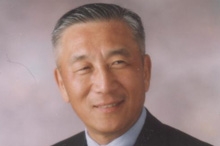
I am humbled and honored to accept the Champions Award on behalf of the YMCA of Greater New York. I have always believed in the power of volunteers to make change in our communities. As a volunteer and a Board member, I have had the opportunity to see good ideas, nurtured by volunteers, grow into powerful life changing opportunities for thousands of people.
Many years ago, as an immigrant to the USA, my wife and I experienced the challenges shared by millions of others. With the help of other immigrant volunteers we were able to create a YMCA program that provided educational and cultural support targeted to newly arrived Koreans.
I was very proud that the YMCA built the city-wide New Americans Welcome Center program using many aspects of that program as a model. The New American Welcome Centers of the
YMCA of Greater New York addresses a widening service gap for the city’s fast-growing immigrant populations.
Through six centers, scores of satellite locations and more than 130 partnerships citywide, the YMCA offers coordinated multilingual resources, referrals and services that helped more than 17,000 individuals and families achieve literacy, high school graduation and college placement, citizenship, cultural competence and self-sufficiency in 2012.
I am also proud that the program is offered free to all participants. Augmenting YMCA support, the program has attracted public funding and has a growing support among private donors and foundations.
1n 2012 the YMCA commissioned an Economic Impact Study by a third party research firm that used proven research methodology to determine some of the far reaching impacts of YMCA programs. Their results demonstrated that based on the success rate of over 62% of students moving to higher levels of English proficiency, $72,000,000 was added to the collective lifetime earnings of the students! Talk about impact!
Also a testament to our success, one of our New Americans Welcome Centers won the NYC Mayor’s Dreamer Award for providing literacy, citizenship and employment readiness to residents of upper Manhattan and the Bronx.
As much as I have supported this program and the many other good programs of the YMCA, I am humbled to also know that this program attracts over 95 volunteers each year that assist with setting policy, coordinating referrals, and countless hours of teaching English to eager new Americans.
Dr. William Lee is a YMCA of Greater New York Board member and has helped develop the YMCA New American Program.
Learn more about Working Families
- &lsaquo previous
- …
- 75
- 76
- 77
- 78
- 79
- 80
- 81
- 82
- 83
- …
- next &rsaquo


Twitter